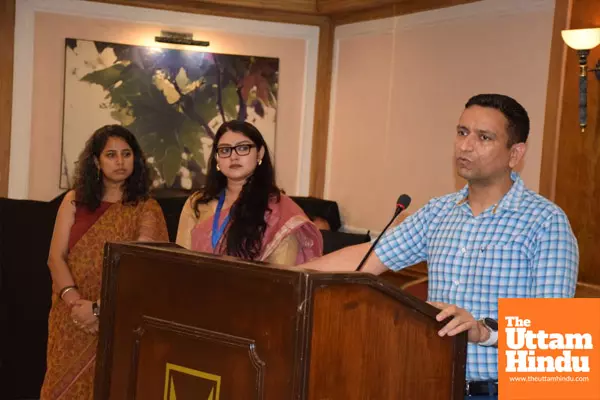
Punjab to be a model state in Antimicrobial Resistance containment : Ghanshyam Thori

Chandigarh (The Uttam Hindu): The Department of Health and Family Welfare, Punjab, in collaboration with the National Centre for Disease Control (NCDC), here today convened a high-level State Action Plan Workshop on Antimicrobial Resistance (AMR) in Chandigarh. This pivotal event marks a significant leap forward in the development of Punjab’s State Action Plan for the Containment of AMR (PB-SAPCAR), a crucial initiative aligned with India's national strategy to combat this growing global health threat.
The workshop was inaugurated by Ghanshyam Thori, Special Secretary Health and Mission Director NHM, Punjab, who underscored the urgent need for a unified, multi-sectoral "one health" approach to tackle AMR. He emphasized the workshop's role in fostering collaboration across human health, animal health, environmental agencies, and regulatory bodies to forge a robust and effective response.
Ghanshyam Thori highlighted Punjab’s strong commitment towards addressing the escalating threat of AMR. He highlighted the state’s proactiveness and collaborative approach to public health policymaking, setting a potential benchmark for other states in India.
The participants gained valuable insight from national experts, including Dr. Lata Kapur, AMR Nodal Officer at NCDC, who elucidated the national AMR strategy. Dr. Aravind R from Kerala shared invaluable best practices in implementing successful state-level AMR frameworks. The workshop also benefited from the active participation of representatives from the Department of Animal Husbandry and Dairying and leading public health figures from across the nation.
A distinguished panel of experts, comprising heads of medical institutions, public health specialists, digital health leaders, and academicians, engaged in a dynamic discussion on innovative AMR containment strategies, expertly moderated by Dr. Parvinder Chawla from Fortis Hospital, Mohali.
The core of the workshop involved a focused group activity centered on four key sectors: Regulation and Administration, Human Health, Animal Health, and Environmental Health. Through a comprehensive SWOT analysis, each group identified three priority action areas, concentrating on critical aspects such as surveillance, promoting rational antimicrobial use, strengthening infection prevention and control measures, enhancing laboratory capabilities, fostering research, and establishing effective governance structures.
The workshop culminated in presentations from each group, outlining their key findings and proposed actions. A vote of thanks was delivered by Dr. Rohini Goyal (Deputy Director) and Dr. Manju Bansal, along with the Governance Fellow Srijita Chakrabarti and Intern NHM Dr. Neha Chaudhary, all of whom are integral to the drafting process of the PB-SAPCAR.

